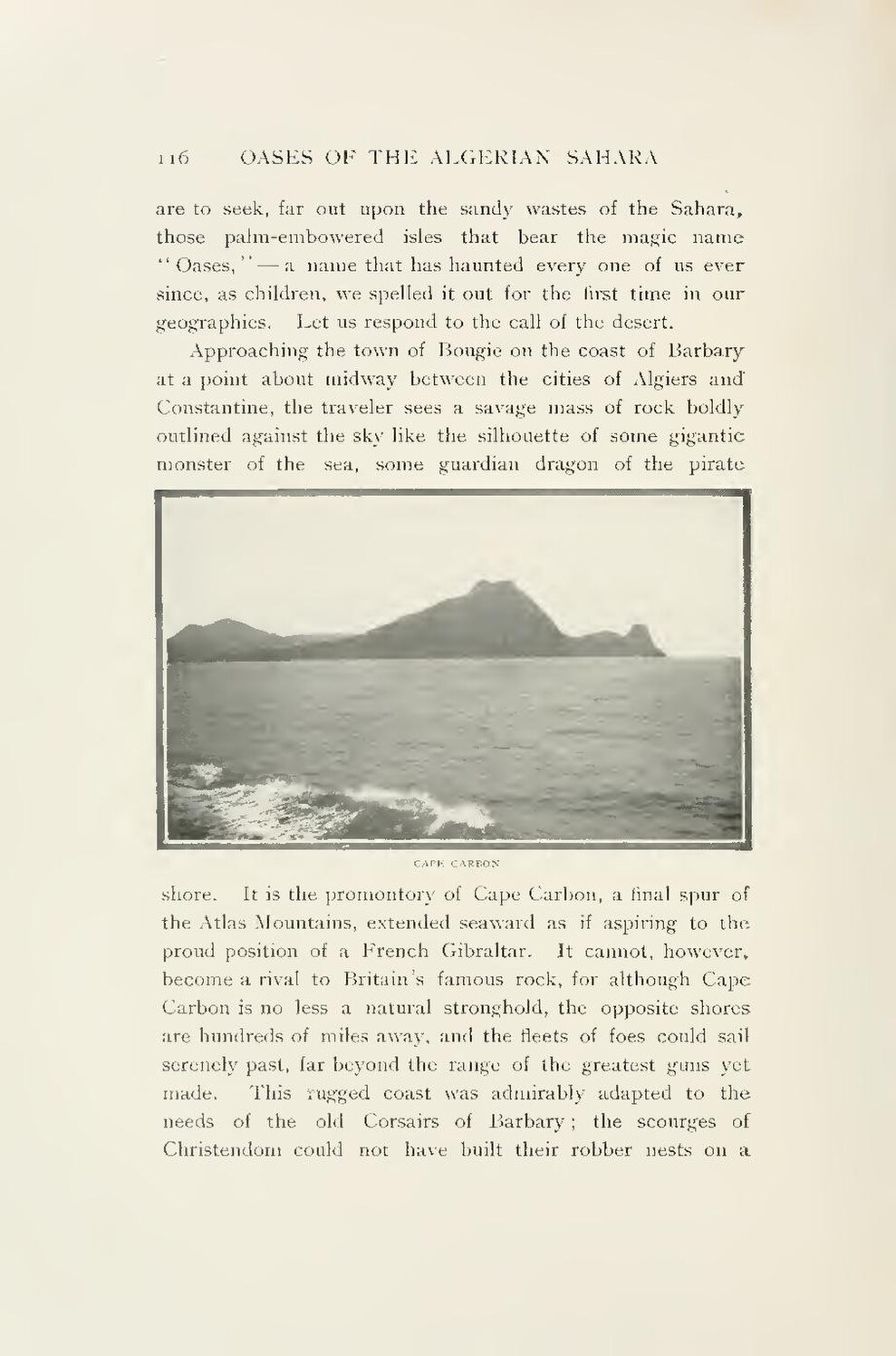are to seek, far out upon the sandy wastes of the Sahara, those palm-embowered isles that bear the magic name "Oases,"—a name that has haunted every one of us ever since, as children, we spelled it out for the first time in our geographies. Let us respond to the call of the desert.
An image should appear at this position in the text. To use the entire page scan as a placeholder, edit this page and replace "{{missing image}}" with "{{raw image|The Burton Holmes lectures; (IA burtonholmeslect04holm).pdf/132}}". Otherwise, if you are able to provide the image then please do so. For guidance, see Wikisource:Image guidelines and Help:Adding images. |
CAPE CARBON
Approaching the town of Bougie on the coast of Barbary at a point about midway between the cities of Algiers and Constantine, the traveler sees a savage mass of rock boldly outlined against the sky like the silhouette of some gigantic monster of the sea, some guardian dragon of the pirate shore. It is the promontory of Cape Carbon, a final spur of the Atlas Mountains, extended seaward as if aspiring to the proud position of a French Gibraltar. It cannot, however, become a rival to Britain's famous rock, for although Cape Carbon is no less a natural stronghold, the opposite shores are hundreds of miles away, and the fleets of foes could sail serenely past, far beyond the range of the greatest guns yet made. This rugged coast was admirably adapted to the needs of the old Corsairs of Barbary; the scourges of Christendom could not have built their robber nests on a
